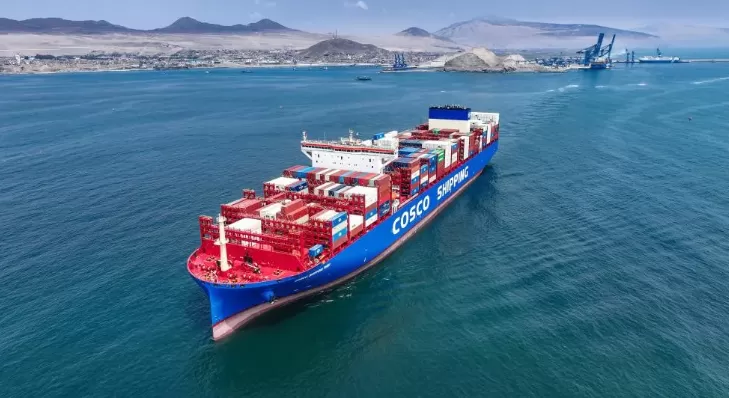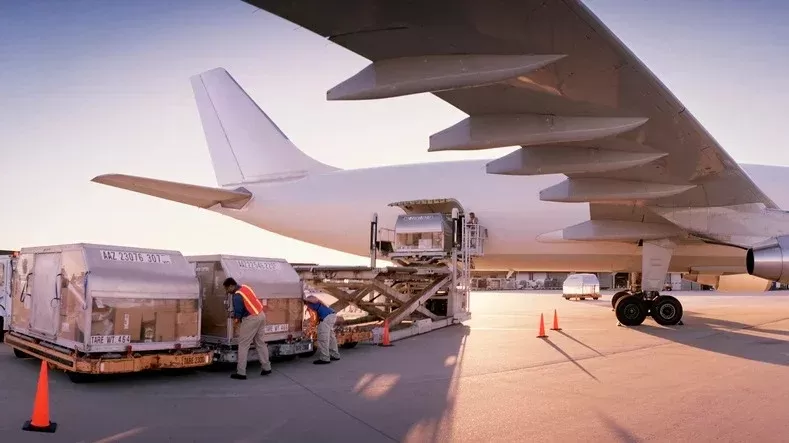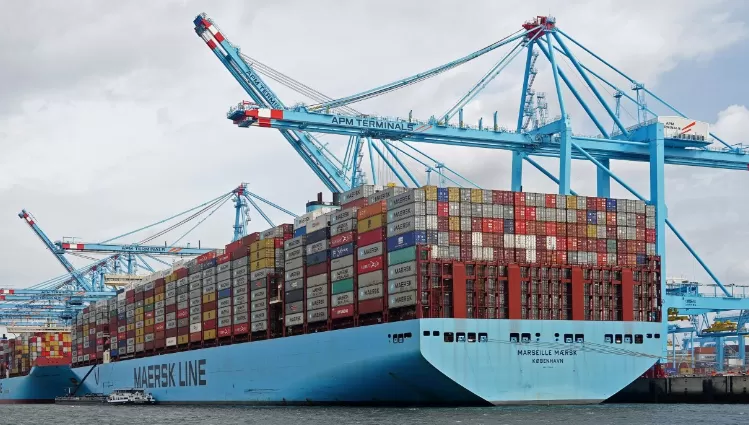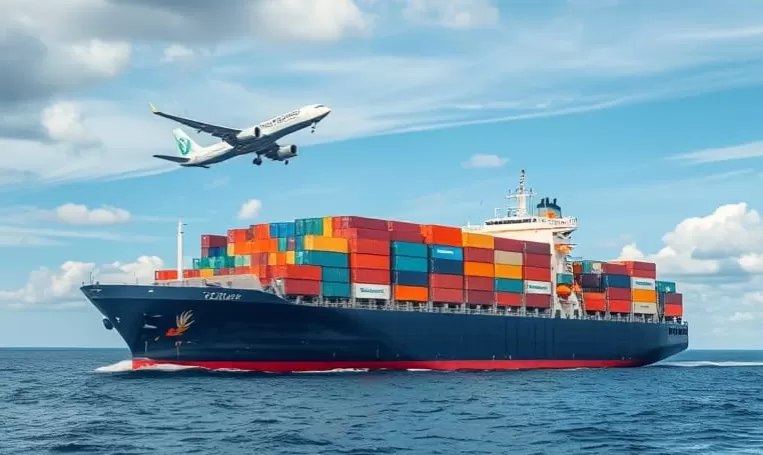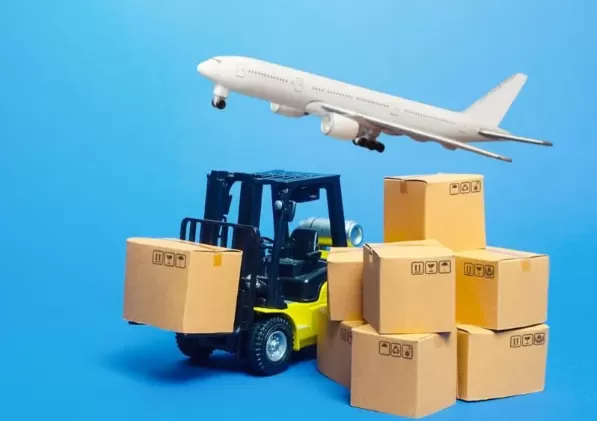Navigating the complex logistics chain from China to Marseille can feel daunting. Between fluctuating freight costs, varying transit times, and the intricate customs landscape of France, having a clear, expert guide is not just helpful—it's essential for your supply chain's efficiency and cost-effectiveness.
This guide cuts through the noise. We provide specific, actionable information for every type of shipper, from Amazon FBA sellers to large-scale importers, detailing everything from air freight for 200kg cargo to 40'HC container shipping and dedicated door-to-door services.
Are you ready?
Get real-time quotes for Marseille
Get Quotes
Your Quick Solution Finder:
E-commerce & Amazon FBA Sellers: Jump to our dedicated FBA Section.
Small Business (LCL & Air Freight): Analyze your options in LCL and Air Freight sections.
Large Volume Importer (FCL): Get detailed insights in the FCL Shipping breakdown.
Freight from China to Marseille
The following table provides estimated market rates for different shipping methods from Shanghai to Marseille. These are sample prices for reference only; your final quote will vary based on exact origin, cargo nature, current fuel costs, and market demand.
Important Considerations:
Air & Express: Rates are for Door-to-Door (DDP) service, including customs clearance.
LCL: Rates are per CBM (cubic meter), Door-to-Door (DDP), with a minimum charge of 1 CBM.
FCL: Rates are for Port-to-Port service. Door-to-Door service will add costs for trucking, customs clearance, and taxes.
| Shipping Method |
Cargo Volume / Weight |
Estimated Cost (USD) |
Key Service Details |
| Air Freight |
100 kg |
$4.5 - $6.5 / kg |
Door-to-Door (DDP). Includes customs clearance. 5-10 day transit. |
| Air Freight |
200 kg |
$3.8 - $5.5 / kg |
Door-to-Door (DDP). Better rate per kg due to volume. 5-10 day transit. |
| Express Courier |
10 kg |
~$68.00 (total) |
Door-to-Door, duties paid. 3-5 day transit. Ideal for documents/samples. |
| Express Courier |
120 kg |
~$5,040.00 (total) |
Door-to-Door, duties paid. Priced as a heavy shipment. 3-5 day transit. |
| LCL (Sea) |
1 CBM |
$115 - $165 / CBM |
Door-to-Door (DDP). Minimum charge applies. 30-40 day transit. |
| LCL (Sea) |
5 CBM |
$95 - $145 / CBM |
Door-to-Door (DDP). More favorable rate. 30-40 day transit. |
| LCL (Sea) |
10 CBM |
$85 - $130 / CBM |
Door-to-Door (DDP). Cost-effective for this volume. 30-40 day transit. |
| FCL (Sea) |
20' Container |
$1,900 - $2,800 |
Port-to-Port. ~28 CBM capacity. 28-35 day transit. |
| FCL (Sea) |
40' Container |
$2,800 - $3,800 |
Port-to-Port. ~58 CBM capacity. 28-35 day transit. |
| FCL (Sea) |
40'HC Container |
$3,100 - $4,100 |
Port-to-Port. ~68 CBM capacity. 28-35 day transit. |
| FCL (Sea) |
45'HC Container |
$3,400 - $4,400 |
Port-to-Port. ~76 CBM capacity. 28-35 day transit. |
Disclaimer: These are sample rates for general cargo and are subject to change without notice. Factors like Peak Season Surcharges (PSS), Bunker Adjustment Factor (BAF), cargo type, and specific origin details in China will affect the final price. Contact us for a precise, no-obligation quote tailored to your shipment.
1. Air Freight Solutions: Speed and Efficiency to Marseille
When time is critical, air freight is your best ally. For shipments under 500kg, the cost dynamics differ significantly from sea freight. Understanding weight breaks is key to optimizing your spend.
For Shipments ~100 kg: This is typically the minimum chargeable weight for air freight. At this level, you're paying a premium for speed. Rates are often calculated per kilogram, but expect a minimum charge. A door-to-door service for 100kg from Shanghai to Marseille might include:
Main air carriage cost.
Fuel and security surcharges.
Origin and destination airport handling fees.
Customs clearance agency fees at Marseille-Provence (MRS) airport.
Final delivery trucking within France.
Pro Tip: For weights just over 100kg, always ask for a quote for 100kg+ and 300kg+. The rate per kg can drop substantially.
For Shipments ~200 kg: You enter a more favorable pricing tier. Consolidators blend your cargo with others, leading to better rates. The total cost will be more nuanced, but the door-to-door principle remains. Key considerations include:
Volumetric Weight: Airfreight uses chargeable weight, which is the greater of the actual or volumetric weight (L x W x H in cm / 6000). For lightweight, bulky items, this is crucial.
Airport vs. Door: A port-to-port (MRS airport) option is cheaper but leaves you to handle French customs and final delivery—a complex task without an EU EORI number.
2. LCL Shipping: The Cost-Effective Choice for SMEs
Less than Container Load (LCL) is the backbone of small to medium-sized business importing. It allows you to ship smaller volumes without paying for an entire container. Your cargo is consolidated with other shippers' goods in a shared container.
The "Sea Truck" or "LCL Door-to-Door" Model: This is the most comprehensive service. We handle the entire process:
Pickup from your supplier in China.
Trucking to our consolidation warehouse in Shenzhen/Ningbo/Shanghai.
Stuffing your goods into a container with other LCL cargo.
Ocean freight to the Port of Marseille-Fos.
Deconsolidation at our partner CFS (Container Freight Station) in Fos.
French import customs clearance (we can handle DDP terms).
Final truck delivery to your door in France.
Costing by Volume:
~1 CBM: Ideal for samples or micro-inventory. You pay a premium per CBM but gain immense flexibility.
~5 CBM: The sweet spot for many small businesses. Costs per CBM become more rational.
~10 CBM & Above: You approach the cost crossover point where FCL might become viable. Always get a comparative quote.
The Hidden Advantage of LCL: You benefit from a fixed, all-inclusive cost (under DDP terms), shielding you from the volatility of destination port fees and surprise trucking costs.
3. FCL Shipping: Maximizing Value for High-Volume Goods
When your shipment volume exceeds 15 CBM or you require complete control over your container, Full Container Load is the answer. Choosing the right container type is a strategic decision.
20' Dry Container (20'DV):
Capacity: ~28 CBM, ~21,700 kg max payload.
Best for: Dense, heavy goods like machinery, metals, or packaged goods that don't have high volume.
40' Dry Container (40'DV):
Capacity: ~58 CBM, ~26,630 kg max payload.
Best for: The most common choice for general cargo, furniture, and retail goods. Offers the best balance of cost and volume.
40' High-Cube Container (40'HC):
Capacity: ~68 CBM, ~26,580 kg max payload.
Best for: Light, bulky items (e.g., furniture, homewares, plastic products). The extra foot in height is critical for maximizing space.
45' High-Cube Container (45'HC):
Capacity: ~76 CBM, ~26,000 kg max payload.
Best for: Shippers aiming for the absolute maximum volume per container. Ideal for the lightest and bulkiest commodities.
Service Model: FCL vs. Sea Truck (FCL Door-to-Door)
While a simple port-to-port service exists, FCL Door-to-Door is highly recommended. We manage the container from your supplier's door, through the voyage, and directly to your warehouse gate in France, including all customs formalities. For inland destinations, "Sea-Air" or "Sea-Truck" (container moved by rail/truck from Fos) can be arranged.
4. Express Courier: For Urgency Under 120kg
For non-palletized, urgent shipments under 120kg, integrated carriers like DHL, FedEx, and UPS are unbeatable.
For Shipments ~10 kg: This is the express courier's core domain. It's a fully integrated door-to-door service with extreme speed (3-5 business days). The quoted price is typically all-inclusive of duties and taxes, making it simple for the shipper.
For Shipments ~120 kg: You are at the top end of express and the lower end of air freight. It is critical to get competing quotes. Often, air freight forwarders can provide a more cost-effective door-to-door solution for this weight, though with a slightly longer transit time due to consolidation.
5. Door-to-Door vs. Port-to-Port: Understanding the Service Spectrum
This is the most critical decision in your shipping process.
Door-to-Door (DDP/DAP Incoterms):
What it is: We, your freight forwarder, take end-to-end responsibility. From collection in China to final delivery at your designated address in France, including all customs clearance and payment of import duties and VAT (on DDP terms).
Who it's for: Almost all small and medium-sized businesses. It simplifies the process, reduces risk, and provides a predictable, all-in cost. This is the foundation of our Sea Truck and Air Truck services.
Port-to-Port (FOB/EXW Incoterms):
What it is: Our responsibility ends at the discharge port in Marseille-Fos. You (or your agent) are responsible for customs clearance, paying French import VAT and duties, and arranging trucking to your final warehouse.
Who it's for: Large importers with a dedicated customs brokerage and logistics team within the EU. It requires an EU EORI number and deep knowledge of French import regulations.
6. The Port of Marseille-Fos: Your Gateway to Southern Europe
Understanding your destination port is a mark of a professional shipper. The Port of Marseille-Fos (UN/LOCODE: FRFOS) is France's largest port and a Mediterranean leader.
Key Terminals: The container operations are concentrated in Fos-sur-Mer, home to terminals like Fos 2XL, capable of handling the world's largest container vessels.
Why it Matters for You: A port of this scale means frequent sailing arrivals from Asia, leading to more competitive shipping rates and better transit time options. Its strategic location offers superior access to markets in Southern France, Spain, and Italy.
Insight: Fos is generally less congested than Northern European hubs like Rotterdam or Hamburg, which can translate to fewer delays during peak seasons.
Amazon FBA
Get real-time quotes for Marseille
Get Quotes
7. A Realistic Cost Breakdown: No Surprises
Let's demystify costs with a hypothetical LCL shipment.
Scenario: 12 CBM, 1,500 kg, Door-to-Door DDP from Shenzhen to Marseille.
Cost Components:
Origin Charges: China pickup, trucking, export customs declaration, documentation fee, consolidation fee.
Ocean Freight: The base rate per CBM from Shenzhen to Fos.
Destination Charges (Marseille-Fos): Port handling fee, deconsolidation fee, import customs clearance agency fee.
French Taxes & Duties: Import VAT (20% on CIF value) and any applicable customs duties. This is included in your quote under DDP terms.
Final Delivery: Trucking from the Fos CFS to your warehouse in Lyon.
By opting for a DDP door-to-door service, you receive one single, all-inclusive quote that covers all these elements, providing budget certainty.
8. A Guide for Amazon FBA Sellers Shipping to France
As an FBA seller, your requirements are unique. Standard shipping isn't enough; you need FBA-compliant shipping.
The Challenge: Amazon has strict requirements for palletization, labeling, and appointment scheduling. Failure to comply results in refusal at the fulfillment center and costly storage fees.
Our Tailored FBA Solutions:
FBA Sea Truck (LCL/FCL): We ensure your cartons are palletized to Amazon's EU standards. We manage the BOL and coordinate the delivery to the correct FC (e.g., XXXX). We can even help with Amazon's required documentation.
FBA Air Truck: For urgent inventory replenishment, we provide a seamless air solution that integrates with the final FBA delivery network.
Value-Added Services: We offer services like FBA label checks and re-labeling, pallet wrapping, and carton inspection to ensure a smooth handover to Amazon.
Your Next Step: Get a Personalized Quote
Why navigate this complex landscape alone? As your dedicated freight forwarder, we specialize in the China-to-Marseille corridor. Our expertise ensures your cargo moves efficiently, compliantly, and cost-effectively.
We provide more than just a price; we provide a partnership.
Ready to simplify your shipping? Click below to get a free, no-obligation customized quote tailored to your specific needs.
[Get Your Free Quote Now]
Frequently Asked Questions (FAQs)
1. Q: What happens if my goods arrive in Marseille, but I don't have an EU EORI number yet?
A: This will cause a significant delay. Customs will not clear your goods without a valid EORI number. The cargo will be held at the port, accruing daily demurrage charges. You must apply for an EORI number from the French tax authorities before shipping. We can often guide you through the application process to prevent this.
2. Q: Are there any items commonly shipped from China that are surprisingly restricted or prohibited in France?
A: Yes, beyond the obvious (weapons, drugs). Pay close attention to items like products containing certain frequencies of radio transmitters, which require specific EU-type approval. Also, goods that imitate food products (e.g., erasers shaped like fruits) can face strict CE marking regulations to prevent choking hazards, and their import can be complex.
3. Q: How does the "Customs Representative" system work in France, and do I need one?
A: If your business is not established in the EU, French law requires you to appoint a fiscal representative (a customs broker) who will be jointly liable for the import VAT and duties. Even for EU-established businesses, using a customs broker is standard practice to navigate the complex declaration process. We partner with trusted local representatives in Marseille to handle this for you.
4. Q: My goods are a mix of different product types (e.g., textiles and electronics). How does this affect customs?
A: This complicates the declaration. Each product type has a different HS code and potentially a different duty rate. Your commercial invoice must clearly separate each item, its value, and its correct HS code. A consolidated or vague description will lead to customs queries, as they cannot apply a single tariff to a mixed shipment.
5. Q: What is the actual process for "bonded" trucking within the EU after my goods clear Marseille customs?
A: Once your goods clear customs in Marseille, they are officially in the EU free circulation. "Bonded" transport is no longer required. The truck that collects your container from the port is a standard freight vehicle. Bonded transport is only used for goods moving between two non-EU points via the EU, or before final customs clearance.
6. Q: Beyond cost and speed, what are the hidden advantages of rail freight between China and Southern France?
A: Rail offers superior predictability and lower carbon emissions. While slower than air, it's less susceptible to the severe congestion and weather delays that can affect sea ports. For inland destinations in Europe, the train often arrives closer to the final point, reducing secondary trucking costs. It's a stable middle ground.
7. Q: Can I ship a used personal vehicle or motorcycle from China to Marseille for my own use?
A: Yes, but it is a highly specialized process. It requires proof of ownership, and the vehicle must pass a French technical inspection to ensure it complies with EU safety and emissions standards. You will likely need to pay VAT and potentially a registration tax. This is not a standard cargo shipment and requires a specialized agent.
8. Q: What specific insurance claims are most common on the China to Marseille route, and how can I avoid them?
A: Water damage and "crush" damage from improper stacking in containers are very common. To prevent this, ensure your goods are palletized, stretch-wrapped, and loaded securely with dunnage. Always opt for "All Risk" marine insurance and document the packing process with photos before the container is sealed.
9. Q: How do I handle the return of defective goods or unsold stock from Marseille back to China?
A: This is a complex, reverse-logistics operation. You must comply with Chinese import laws for returned goods, which often requires proving the items were originally exported from China. The process involves re-import customs clearance and can be administratively heavy. It's often more cost-effective to dispose of or liquidate the goods within the EU.
10. Q: My supplier in China is handling the China-side export customs. What documentation do I need from them to ensure a smooth import in Marseille?
A: You must receive a copy of the China Customs Export Declaration. This document is crucial for French customs to verify the origin and declared value of the goods. Without it, your clearance in Marseille can be held up for verification, as the commercial invoice alone is not always considered sufficient proof.
11. Q: For temperature-sensitive goods, what are the key differences between a "Ventilated" container and a "Reefer" (Refrigerated) container?
A: A ventilated container simply circulates ambient air to prevent moisture build-up (e.g., for coffee or cocoa beans). A reefer container is a refrigerated unit that actively controls the temperature to a set point (e.g., +5°C or -25°C) for perishables like pharmaceuticals or frozen food. Choosing incorrectly can ruin your entire shipment.
12. Q: What is the "ENS" (Entry Summary Declaration) and who is responsible for filing it to French authorities?
A: The ENS is a security declaration that must be submitted to EU customs before cargo departs from a non-EU port. As your freight forwarder, we are legally obligated to file this on your behalf. It provides French authorities with advance data to assess security risks. Failure to file correctly can result in fines and the cargo being stopped at the EU border.

 EN
EN
 FR
FR
 ES
ES
 JA
JA
 PT
PT
 RU
RU
 AR
AR
